When David Laws moved in as chief secretary to the Treasury in 2010, he found a note from his predecessor Liam Byrne saying: ‘I’m afraid there is no money.’ It was the most famous parting gift in British political history. What was meant as a joke (Byrne had thought his friend Philip Hammond would get the job) quickly became the coalition government’s most effective weapon against the opposition: proof that Labour could not be trusted with the public finances. Today, Labour wants to level the same accusation against the Conservatives.
‘On the first day [in power], we need to land the message very quickly that the finances are in a very bad state and it is all because of the Tories,’ says one Keir Starmer aide. ‘We would need to make them wear it. Then show it’s even worse than they let on.’ That should not be hard to do. Welfare costs are surging, with 5,000 new sickness benefit claims a day, the NHS is in a state of near-collapse and the tax burden has already been pushed to a post-war high.
As a result, Starmer plans to lower expectations and establish from day one who is to blame for the lack of room for manoeuvre when it comes to public spending. Yet the fact that Labour’s strategists are worrying about the public’s expectations for a Starmer government is proof in itself of how much their confidence has grown in the past year. Rishi Sunak’s failure to significantly move the polls means that Labour aides now often talk about ‘when’ they are in government rather than ‘if’. In the world of commerce, a Labour victory is viewed as inevitable. Labour’s business forum at the party conference in Liverpool at the weekend will have more exhibitors than the Tories had in Manchester this week. The event will be closer to Davos than to a socialist rally.
Sunak has concluded that, with the Tories behind in the polls and so little time left until the next election, he may as well take some chances. ‘He’s just decided – fuck it,’ says a senior aide. His party conference strategy was to do the things he had always wanted to do and announce them all at once to make a big bang. ‘He’s contrasting his action against Starmer’s inaction,’ says one senior minister. ‘Starmer says we’ll get the same: more spending, more tax. He’s the one offering more of the same, Rishi is offering change. This is the paradox. Voters do want change, and the Tories will more plausibly offer it.’
This rather optimistic Tory strategy is based on a belief that if Starmer is wedded to a caution-first strategy, Sunak can spring to life as an energetic reformer, causing a stir, and choosing subjects that will be big talking points. He spent the first year of his premiership promoting his ‘five pledges’, which were devised with heavy influence from focus groups. His new priorities are more personal. ‘What they have in common is they are all things he fundamentally believes in,’ says a senior government figure. They are intended to go back to his main point: that politicians in the past have shied away from making tricky decisions and talking about trade-offs.
The Prime Minister has succeeded in grabbing attention with his first two policy changes. He has taken a carving knife to two Tory sacred cows: HS2 and the net zero agenda. He has always resented both projects as being hugely expensive and lacking an honest analysis of the trade-offs. In his conference speech, he made two more big announcements: the abolition of A-levels, and a New Zealand-style lifetime smoking ban for those born after a certain year (in this case, 2009).
Sunak is teetotal and doesn’t smoke. He believes cigarettes inflict a massive cost on human life, as well as the NHS. So Britain will copy Jacinda Ardern’s radical policy of a ban that would, in time, see shopkeepers legally selling cigarettes to 26-year-olds but not 25-year-olds. Someone buying cigarettes 50 years from now would need to prove they were at least 64. Britain would become one of the three most anti-smoking countries in the world – the most hardline being the Himalayan kingdom of Bhutan, which banned cigarette sales outright in 2010.
It’s a talking point, certainly, but the announcement doesn’t exactly scream faith in people’s personal autonomy. Wes Streeting, Labour’s shadow health secretary, was already saying he was considering a smoking ban. Like financing childcare for the under-fives, Sunak is implementing an idea that Labour was considering in the hope that doing so will deny Starmer the chance to set an agenda. The arguments against a ban – that corner shops may close, that gang members may have a new product to sell – will probably be made by Tories in what is expected to be a free vote, on the grounds that it is a conscience issue.
Sunak’s second new policy announcement is bigger still. Scrapping A-levels in favour of a UK version of an international baccalaureate – titled the ‘advanced British standard’ – would upend 70 years of English education on the premise that choosing three subjects forces children to specialise too early. England will become more like Scotland, where students typically choose five Highers. Crucially, teaching time would be increased and there would need to be fewer free periods. Since exam boards and universities would have to fine-tune an entirely new system, the change would take years to implement.
Given that Sunak is not, to put it politely, the odds-on favourite to win, what’s the point of all this? Why is he making long-term plans when he has most probably just months left in office? The reason is Team Sunak want to try to pitch him as the change candidate – ‘the only way we will win,’ according to a strategist. The message they hope to push is that Starmer is prone to change his stance on issues and appears opportunistic.
Starmer’s first test will be how much of Sunak’s agenda he rejects. Would he really bring back a 2030 ban on petrol-car sales, given that the necessary infrastructure and charging apparatus shows no sign of being built? Would he deny that A-levels need reform? (Tony Blair considered an overhaul, only to get cold feet.) Would he risk being seen as pro-tobacco? Or claim that the original HS2 plan really is better than the infrastructure upgrades promised by Sunak?
There are still members of the shadow cabinet who worry about the polls and just how reliable Labour’s 20-point lead is. ‘It’s not real,’ says one put-out Labour MP. ‘It doesn’t feel like a 20-point lead when you knock on doors. I’m betting on a small majority or a hung parliament with the Liberal Democrats.’
To avoid such a fate, the question Starmer needs to answer in Liverpool is: ‘If not them, why us?’ So far, he has had little luck doing so. Earlier this year he laid out five ‘national missions’, but they have had little public cut through and are disliked by many aides and shadow ministers. ‘They are a load of gibberish,’ says one Labour aide. ‘No one is sure what they mean, including the politicians who are meant to action them.’ Others in the shadow cabinet complain that there are too many policy advisers and no clear overall strategy.
Like Sunak, Starmer wants to show that he represents change. After 13 years of Tory government, his argument is easier to make. Labour left-wingers, already upset at the party’s move to the right, could be disappointed further. Starmer’s goal at party conference is to reach out to voters who have not previously voted Labour. ‘One of the things we need to do is speak to Spectator readers and those in the centre-right who have voted Tory for a long time,’ says a figure close to Starmer. ‘If you are for sound money, patriotism, an improved country and politics out of your life, we are here.’
Starmer worries that voters still see his party as anti-aspiration, which is why he’s scrapping plans to end the charitable status of private schools while still charging VAT. Some 17 per cent of English sixth-formers are educated privately, which means there would be quite a lot of parents bracing for 20 per cent VAT on school fees. The day after Labour’s defeat in the Uxbridge by-election, he told his party that they are doing something wrong if their policies ‘end up on each and every Tory leaflet’. There are those in the shadow cabinet, however, who complain that he lacks boldness. ‘What are we if the Tories agree with all our policies?’ asks one shadow cabinet member.
Starmer’s aides want to compete on personality more than policy. Liz Truss’s appearance at Tory party conference dismayed 10 Downing Street but delighted Starmer. ‘There were more people queuing to see Liz Truss than in the hall to see Jeremy Hunt,’ says a Labour figure. Truss has a book due out in April and her prominence is useful to Labour, who are stoking fears of a Truss revival.
In past elections, the Tories have talked up the threat of a hung parliament and a Labour-run ‘coalition of chaos’. In next year’s election, Labour will argue that a slender majority for Sunak, which is perhaps the best result he can hope for, would mean hellraising MPs on the Tory right would hold the balance of power. Rachel Reeves, the shadow chancellor, will use her speech in Liverpool to argue that the electorate’s choice is between stability with a changed Labour party or five more years of Tory chaos.
The next election will be fought like a presidential campaign, each party targeting the other’s leader. Labour believes Sunak is a too-slick-by-half banker unable to win enough votes in his own party, let alone the country, and liable to become tetchy under pressure. The Tories see Starmer as a slow-moving legal bureaucrat, laughably miscast as party leader: a moaner, not a reformer.
Of the two, opinion polls seem to back Starmer as the reassuringly dull face of change, while Sunak has just a few months for his gamble to pay off. Both sides know that the party conferences were their last chance for a makeover. As they go into an election year, the battle lines have now been drawn.
Got something to add? Join the discussion and comment below.
Get 10 issues for just $10
Subscribe to The Spectator Australia today for the next 10 magazine issues, plus full online access, for just $10.
You might disagree with half of it, but you’ll enjoy reading all of it. Try your first month for free, then just $2 a week for the remainder of your first year.


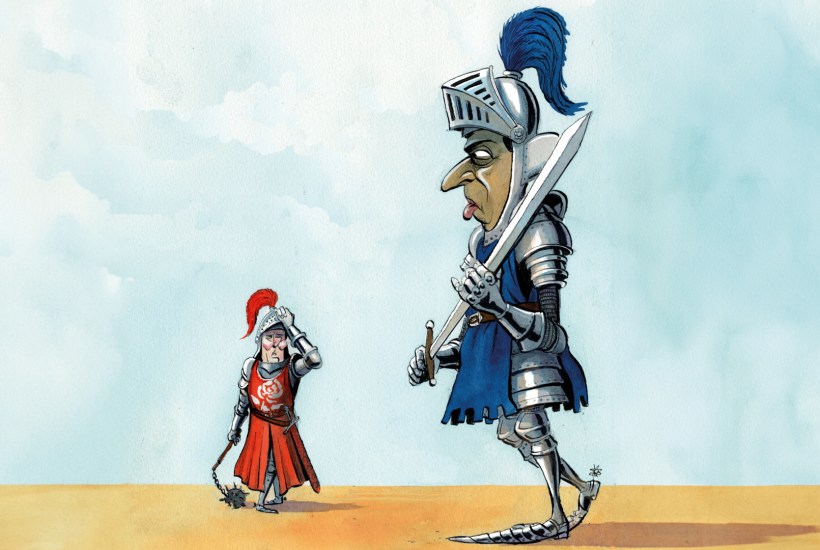
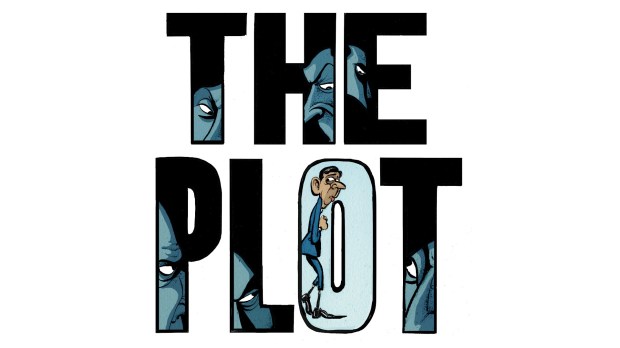
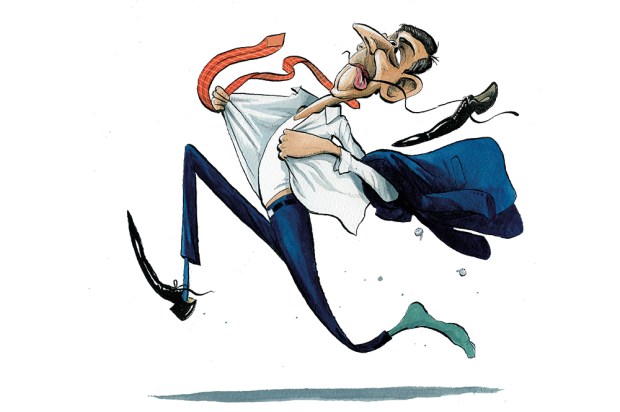

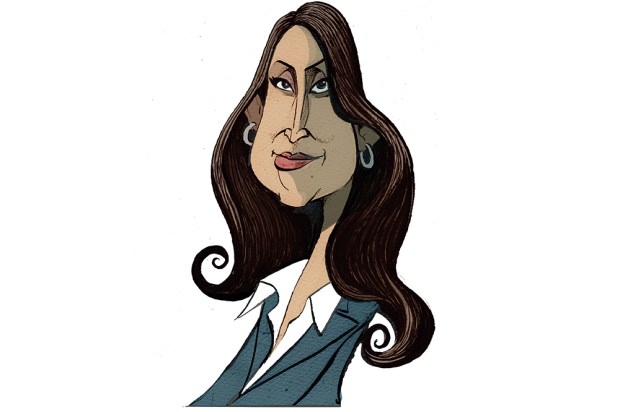
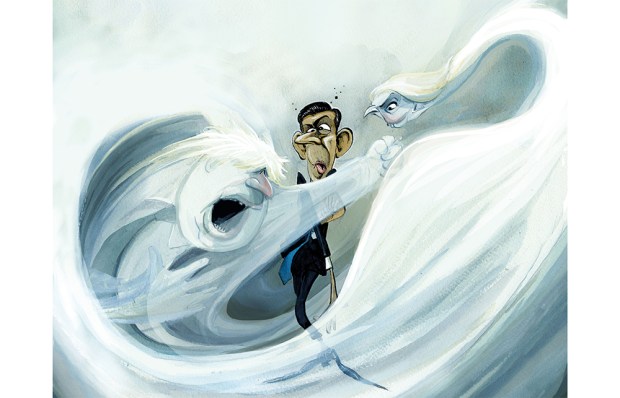
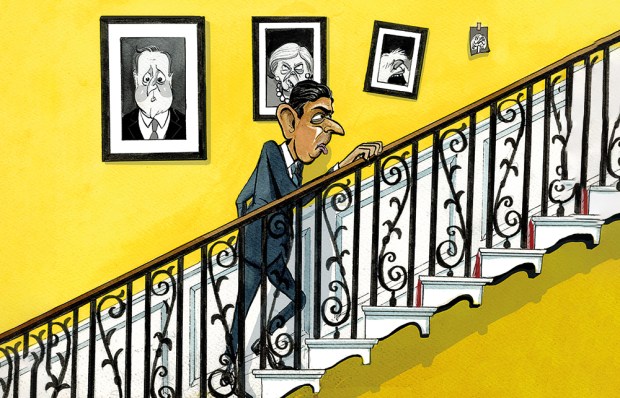






Comments
Don't miss out
Join the conversation with other Spectator Australia readers. Subscribe to leave a comment.
SUBSCRIBEAlready a subscriber? Log in